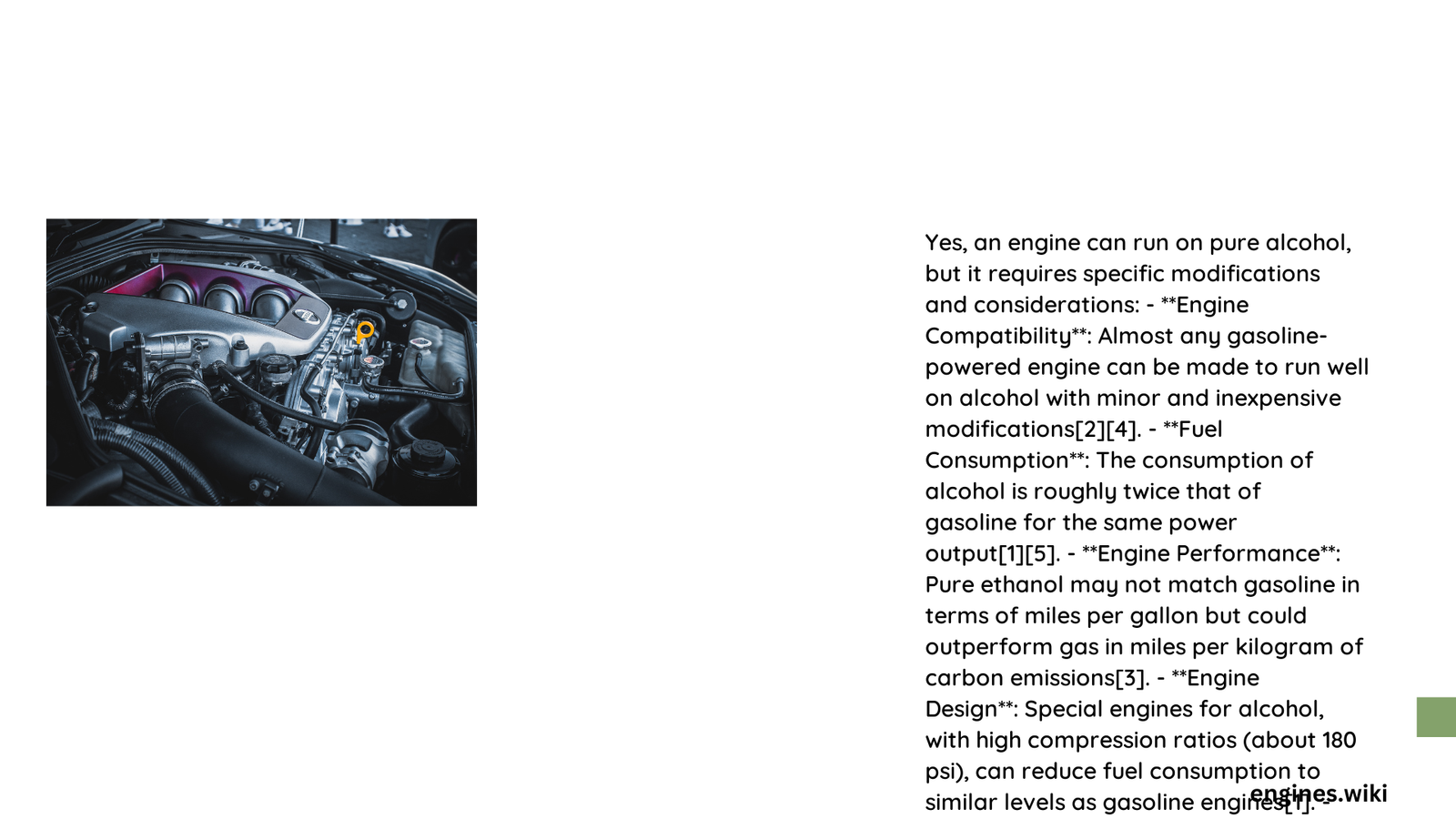Pure alcohol, specifically ethanol, can indeed power internal combustion engines, but it requires substantial technical modifications and understanding of its unique combustion characteristics. Engines designed to run on pure alcohol must address complex challenges related to fuel system compatibility, compression ratios, and material resistance to ensure optimal performance and longevity.
Can Pure Alcohol Power an Internal Combustion Engine?
What Makes Alcohol Unique as a Fuel?
Alcohol, particularly ethanol, presents distinctive fuel properties that differentiate it from traditional gasoline:
| Property | Ethanol | Gasoline |
|---|---|---|
| Octane Rating | 108-116 | 87-94 |
| Energy Density | Lower | Higher |
| Combustion Temperature | Lower | Higher |
What Engine Modifications Are Required?
Compression Ratio Adjustments
- Ethanol allows higher compression ratios (14:1 to 16:1)
- Requires specialized engine design
- Enables more efficient energy conversion
Fuel System Redesign
- Wider fuel passageways
- Corrosion-resistant materials
- Enhanced injector specifications
- Specialized fuel line components
What Performance Characteristics Emerge?
Horsepower and Efficiency Considerations
- Potential power output similar to gasoline engines
- Approximately 30% reduction in fuel efficiency
- Lower miles per gallon compared to traditional fuels
What Are the Material Compatibility Challenges?
Critical components requiring specialized treatment include:
– Fuel lines
– Gaskets
– Seals
– Injectors
What Environmental Implications Exist?
Emission Profile
- Reduced soot production
- Lower benzene emissions
- Potential for renewable sourcing
- Lifecycle pollution considerations
What Technical Expertise Is Necessary?
Successful pure alcohol engine implementation demands:
– Advanced mechanical engineering knowledge
– Specialized materials science understanding
– Comprehensive combustion chemistry expertise
Practical Recommendations
✅ Recommended Actions:
– Consult automotive engineering specialists
– Use ethanol-compatible materials
– Design custom engine components
– Implement rigorous testing protocols
❌ Avoid:
– Direct gasoline engine conversion
– Generic material selections
– Overlooking compression ratio modifications
Conclusion

While technically feasible, running an engine on pure alcohol requires sophisticated engineering interventions. Success depends on meticulous design, material selection, and comprehensive understanding of alcohol’s unique combustion characteristics.
Technical Limitations
- Higher production costs
- Complex modification requirements
- Performance trade-offs
- Limited infrastructure support
Future Potential
Ongoing research continues to improve alcohol-based engine technologies, promising more efficient and environmentally friendly transportation solutions.
Recommended Next Steps
- Conduct comprehensive feasibility studies
- Develop specialized engine prototypes
- Perform extensive performance testing
- Evaluate economic viability
